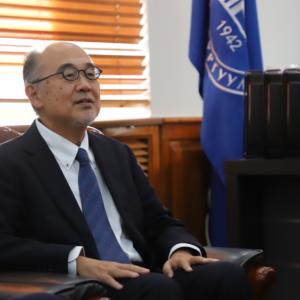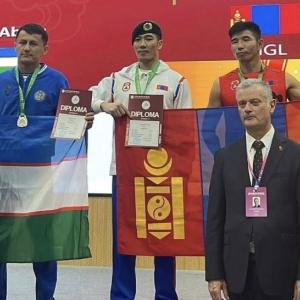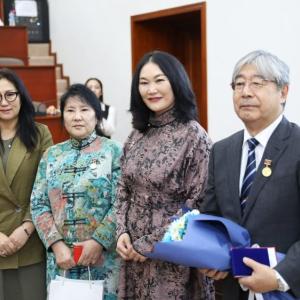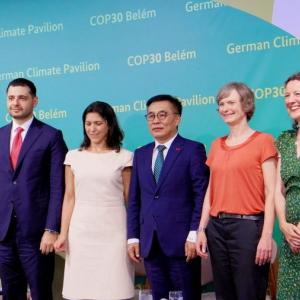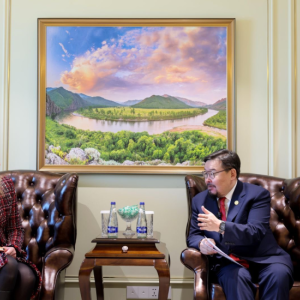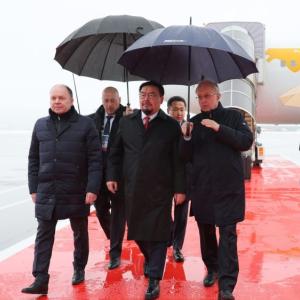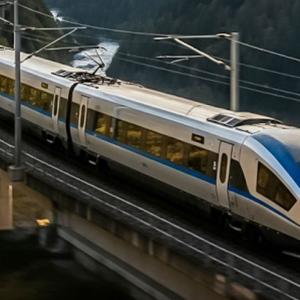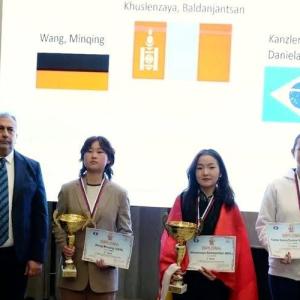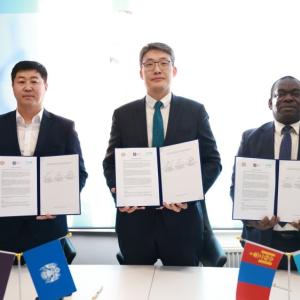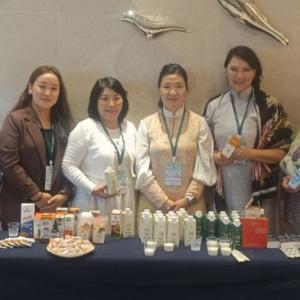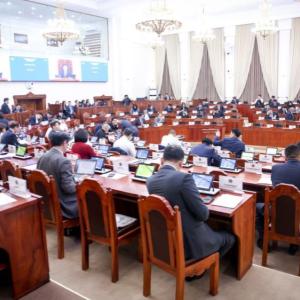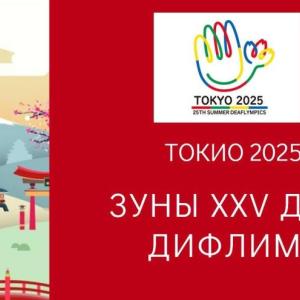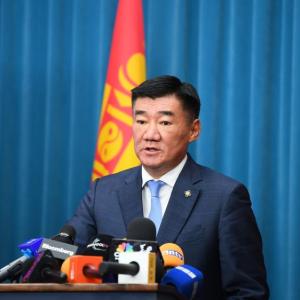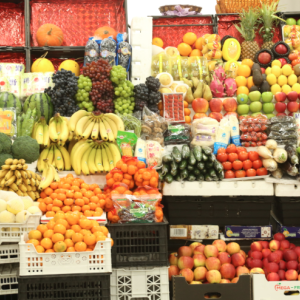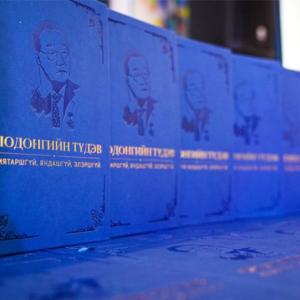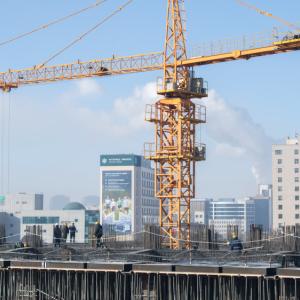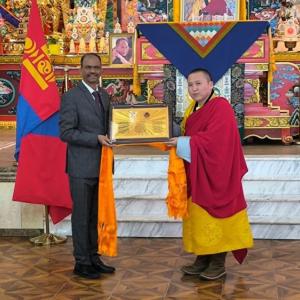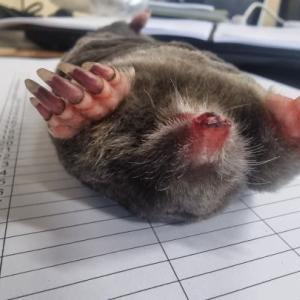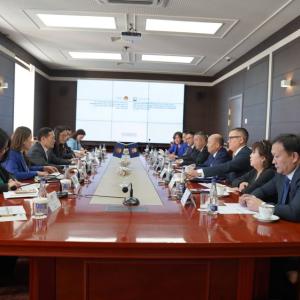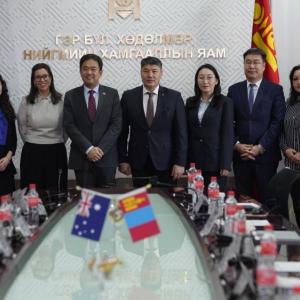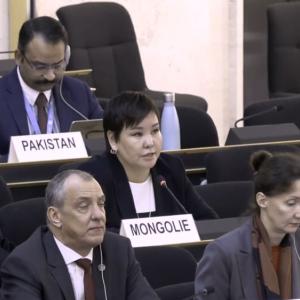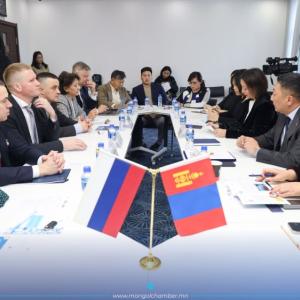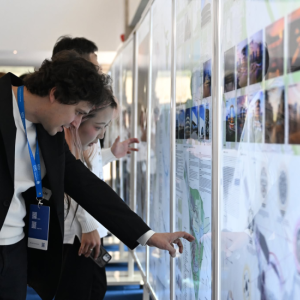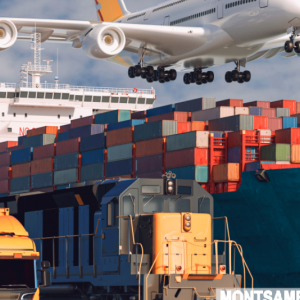The interest of Mongolia in the Far East
The Mongol Messenger
Ulaanbaatar /MONTSAME/. Every spring in Saint Petersburg and every fall in Vladivostok, the Russian Federation traditionally hosts economic forums. The Saint Petersburg economic forum brings together representatives and business-people from the west whereas the guests and participants of the Vladivostok forum, by and large from Asian countries, gather to discuss cooperation and investment topics.
Vladivostok becomes a platform for discussing business
The fifth Eastern Economic Forum was held in Russia’s Far Eastern city of Vladivostok on September 4-6 and President of Mongolia Kh.Battulga attended the annual forum for the third year, introducing Mongolia’s interest in the Far Eastern region as well as policy and position. In addition, he held bilateral talks with Prime Ministers of Japan and India to discuss about future relations and cooperation.
Under the auspices of the President of Russia, the forum with the purpose of reinforcing the development of the economy and investment in the Russian Far East, strengthening regional economic partnership of the Asia Pacific and presenting ready-to-launch investment opportunities was attended by Prime Minister of Japan Shinzo Abe for the fourth time. The Japanese delegation this year chartered two planes. In his speech addressed the Eastern Economic Forum 2019, the Japanese Premier re-raised the issue of the Japan-Russia peace treaty and remarked that speeding up the negotiations to show substantial results will be a foundation to have further relations based on mutual equality. The Eastern Economic Forum marked the 27th meeting between Shinzo Abe and Vladimir Putin.
Prime Minister of India Narendra Modi, who took part in the Eastern Economic Forum for the first time, was accompanied by 150-member business delegation. He announced USD 1 billion line of credit for the development of the Russia’s Far East and highlighted the necessity of immediate execution of project to build a sea link between Russia’s Vladivostok and India’s Chennai. Prime Minister of India arrived at the forum also for the first time and Singapore and China sent delegations led by each of their Deputy Prime Ministers.
President of Russia Vladimir Putin noted in his opening remarks at the plenary session of the Eastern Economic Forum 2019 that the representation on the forum has increased more than twofold since the first forum, as Russia hosted over 8,500 participants from 65 countries this year, which is a convincing indication of the growing interest in the Russian Far East and the cooperation opportunities offered. In particular, the first forum in 2015 attracted around 1500 delegates from 24 countries and witnessed signing of some 80 agreements covering more than 200 deals worth RUB 1.3 billion. At the Forum of 2018, the figure rose to a total of 220 deals costing RUB 3.1 billion and more than six thousand delegates took part in.
Until the 1990s, Vladivostok, where the Soviet Pacific Fleet was headquartered, was a city off-limits to foreigners, used for defensive purposes. The city with a population of 600 thousand hosted APEC Summit in 2012 and the Government of Russia budgeted USD 20 billion for the hosting of the summit, modernized the city’s infrastructure and redeveloped the Russky Island as a university campus. The Far Eastern Federal University’s new campus and its infrastructure later started housing the Eastern Economic Forum in 2015. In other words, the city of Vladivostok, which remained closed during the so-called socialist years, now turned into a platform that invites foreign investors and offers projects available for investment and to where regional and global leaders and business people travel to have business talks. In this sense, Vladivostok city is to become a crucial hub for partnership, investment and transportation for not only Russia, but also for the Asia Pacific region in the 21st century. The city’s favorable geographical location and important sea ports of water transportation made evident that the economic role of Vladivostok will grow in the future.
Mongolia’s opportunities to gain from the development of the Far East
What would be the interests of Mongolia in the Far East region and how it would benefit Mongolia? Concerning this question, President of Mongolia Kh.Battulga noted in his speech at the Eastern Economic Forum 2019, firstly, trade representative office of Mongolia is to open in Vladivostok as an Mongolia’s effort to take part in trade and economic relations of the Far East region. As of today, consulates and representative offices of 23 countries are operating in Vladivostok. Secondly, possibilities to establish free trade agreement between Mongolia and Eurasian Economic Union are under study with the aims to advance trade, economic and investment collaboration with the regional nations, reduce tariff and non-tariff barriers and take full advantage of economic and investment potentials.
Thirdly, with a view to ensure an active participation of Mongolia in the regional economic integration by developing its transportation infrastructure in coordination with its two neighbors Russia and China, a program to establish ‘Economic Corridor’ of the three countries will be implemented with increased common mechanism activities.
In the fourth, in the course of a proposal to set up an organization responsible for coordinating the Northeast Asian energy network project put forward at the previous Eastern Economic Forum, state-owned companies from the regional countries in charge of energy supply, network and investment are working together to lay the required groundwork for the projects initiated in the region through conducting technical research and detailed economic studies on electricity generation and power trading.
In the fifth place, the Mongolia’s proposal to build a gas pipeline from Russia to China through the territory of Mongolia was backed up by the President of Russia and the Chinese President pledged to look through it. In conclusion, the President of Mongolia expressed Mongolia’s willingness to be open and engaging while stressing its mission to create value together, achieve equitable development and thrive for trust-based cooperation.
Altogether in order to assure its active involvement in the Far East region, Mongolia first and foremost is aiming to have its trade representative in this region and build a terminal for loading and unloading its export commodities, coal and steel to further deliver them to global markets. Works are underway to decrease any barriers encountered in trade and economic activities with the help of negotiations and accomplish projects and program that can be undertaken by the implementation with the main partner countries Russia and China. Mongolia is geared up for participation in other projects along with regional countries.
The President voiced his proposal for co-creation of values and cooperation of mutual benefit from the podium of the forum as well as during his bilateral meetings with heads of governments of Japan and India and introduced and exchanged views on mutually achievable areas and projects necessitating investment with them rather than asking for loans and assistance.
Conclusion of a peace treaty between Japan and Russia brings about significant positive impact on the development of the region. The regional cooperation investment and future image depend on it. In this regard, Mongolia, greeting the forthcoming growth of this region, is motivated by a desire to have an infrastructure for its own contributions in the development. The Mongolian President expressed this position for the third year at the Eastern Economic Forum.
Some particular works are being done in this connection. To be more precise, in 2018, the Government of Mongolia decided to open the trade representative office in Vladivostok and preparations are in full swing. The forum saw an announcement of the completion of the technical and economic feasibility study of the coal terminal to be built by the Mongolian Erdenes Tavan Tolgoi company and Russian leading transportation and logistics company FESCO Company at the Port of Zarubino in the Far East of Russia. This will be an infrastructure to bring raw materials from Mongolia through another outlet to Japan, South Korea and India and to other countries of the world. On the grounds of which, Mongolia is paving the way to gain from regional trade and investment via the far East by constructing its infrastructure beforehand.
Sh.Batbold


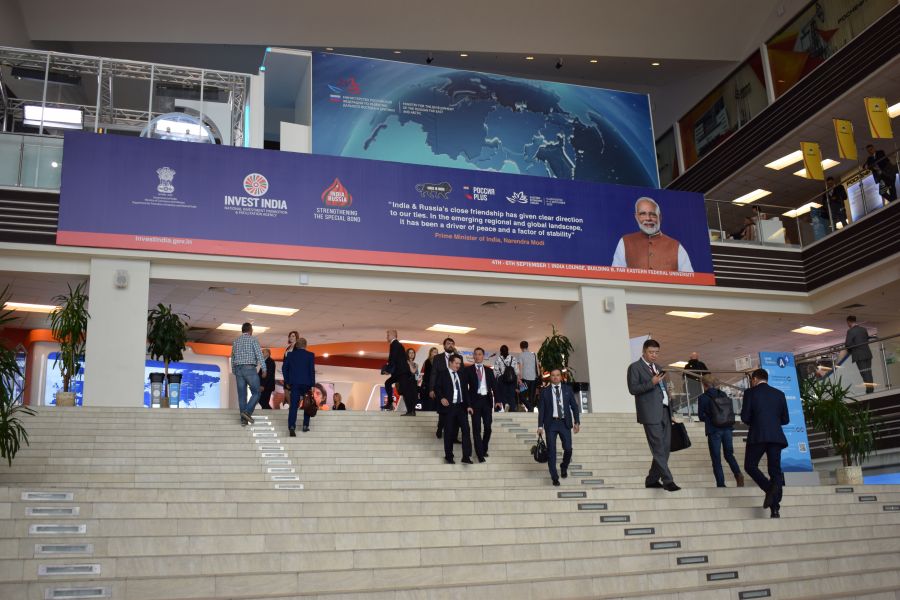
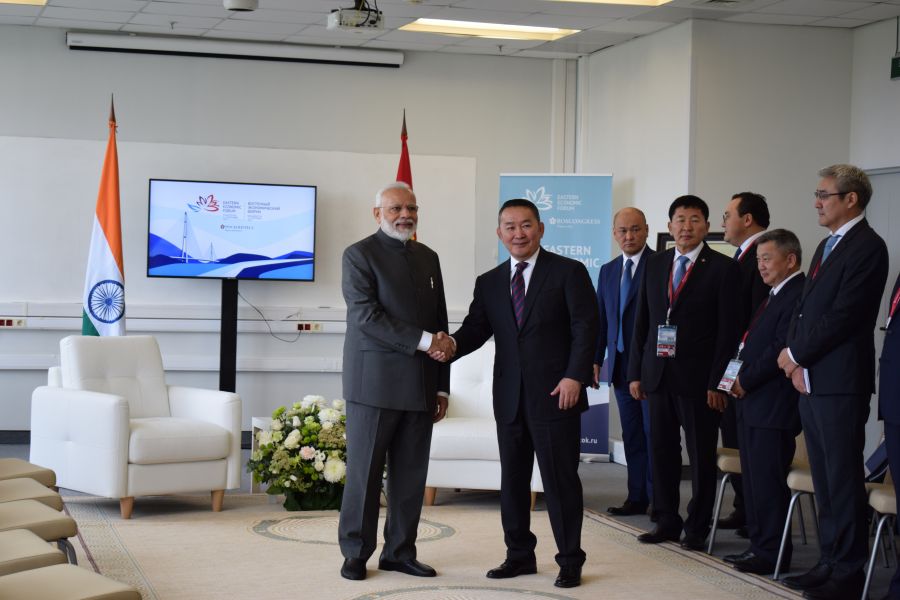
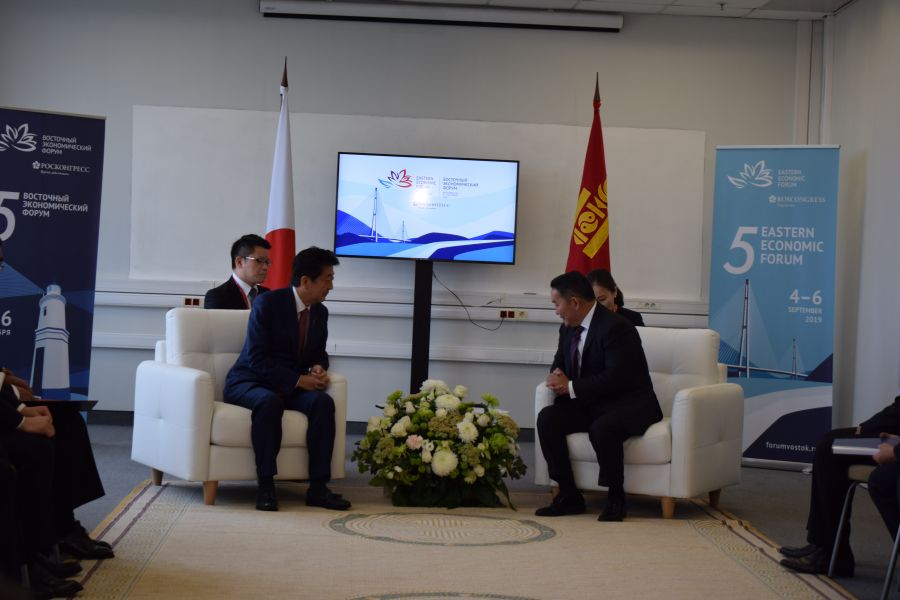



 Ulaanbaatar
Ulaanbaatar







